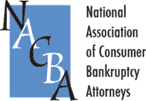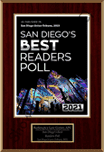Bankruptcy Law Center recently won an important appeal before the Ninth Circuit in Delisle v. Speedy Cash. The San Diego bankruptcy law firm represents the plaintiffs in a class-action lawsuit involving unfair interest rates used in Speedy Cash’s short-term loans. Justice Gonzalo P. Curiel denied Speedy Cash’s Motion to Compel Arbitration and Stay Proceedings. The Ninth Circuit Court remanded the case down to the federal District Court to consider what effect California Financial Code Section 33304.5(a) has on the Court’s public injunctive relief analysis.
Short-Term Loans and California Law
Every state, including California, has usury laws prohibiting lenders from selling loans with outrageous terms. In the Delisle case, the plaintiffs claim that Speedy Cash, a short-term loan company, charges interest rates, fees, and penalties that are so high that customers will never be able to repay the loans. They further alleged that Speedy Cash customers do not have enough time to review the loan agreement to understand the conditions.
The plaintiffs entered a loan agreement with Speedy Cash in 2018. Speedy cash offered Ms. Delisle a loan for $4457.38 at an annual percentage rate (“APR” ) of 95.737%. She had signed a similar loan contract on October 17 in which Speedy Cash loaned her $2600 at an APR of 135.441%.
The loan agreement included an arbitration provision that required any disputes related to the contract to be arbitrated. The complaint alleged that requiring Ms. Delisleto to repay a minimum of $15,000 to pay off a loan of less than $4,500, along with the lack of opportunity for Ms. Delisle to review the contract before signing fully, violates California’s Unfair Competition Act.
Issues Decided on Appeal
The Ninth Circuit ruled on whether or not the arbitration clause in the loan agreement violates California law. Speedy Cash filed a motion to compel both parties to the arbitration. The plaintiffs argued that the loan agreement’s arbitration clauses were unconscionable under California law because it contained a waiver of public injunctive relief. As a result, the “poison pill” provision in the arbitration clause nullified arbitration requirements.
The Ninth Circuit upheld the district court’s denial of the defendant’s Motion to Compel Arbitration. On remand, the district court will determine whether the newly enacted California Financial Code Section 22304.5(a), which prohibits lenders from charging interest rates over 36% on loans ranging from $2,500 to $10,000, will affect the court’s public injunctive relief analysis.
The plaintiffs will argue that they are still seeking public injunctive relief and that the court’s decision that the arbitration clause is null should stand. Should the court uphold the nullification of the arbitration clause, the case will proceed, and the court will determine whether Speedy Cash’s loans are unconscionable on the merits.
The Speedy Cash Interest Rates Class Action Lawsuit is Cindy Delisle v. Speedy Cash, Case No. 3:18-cv-02042-GPC-RBB, in the U.S. District Court for the Southern District of California.









